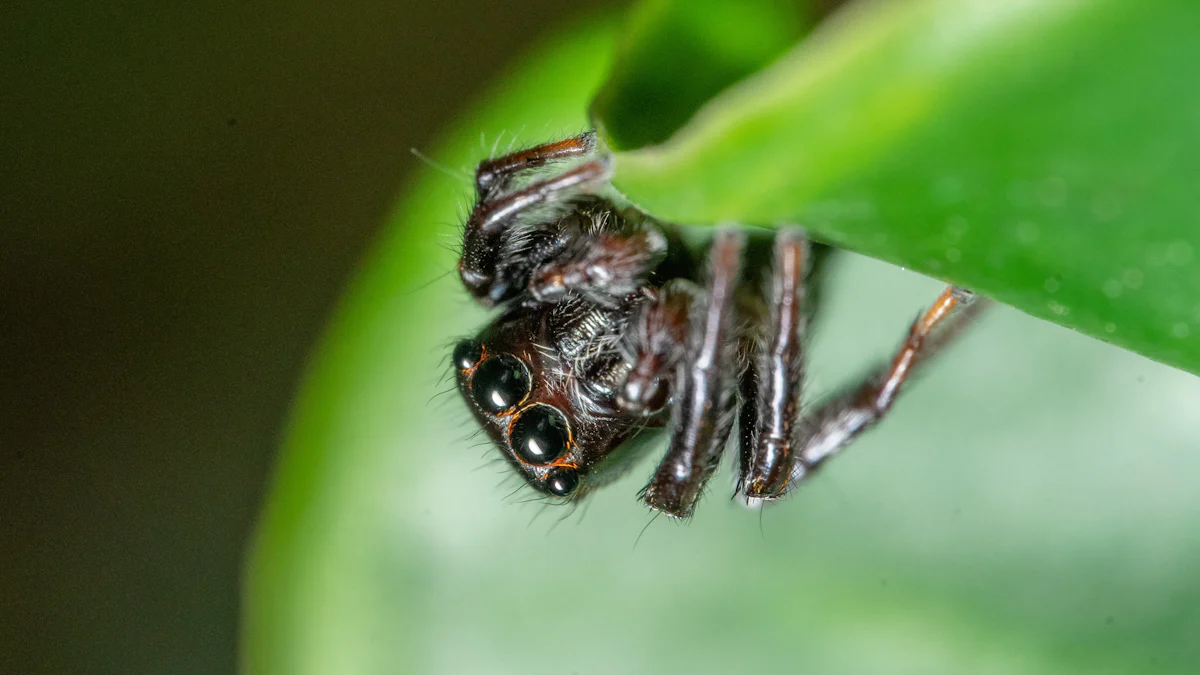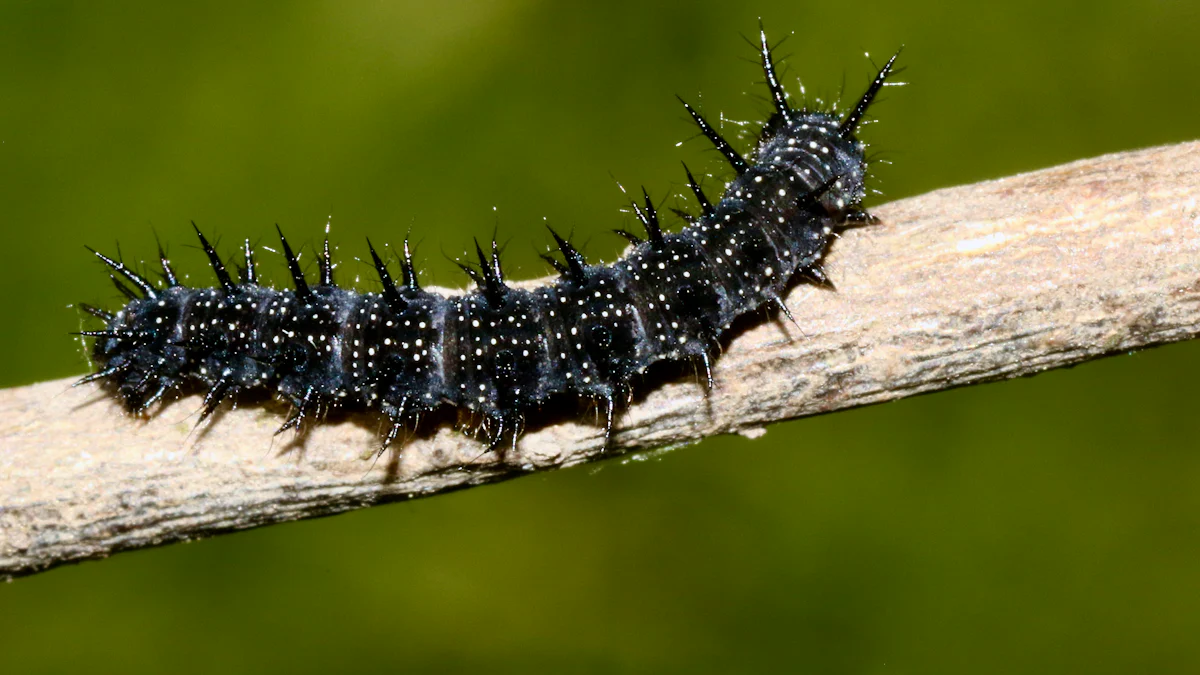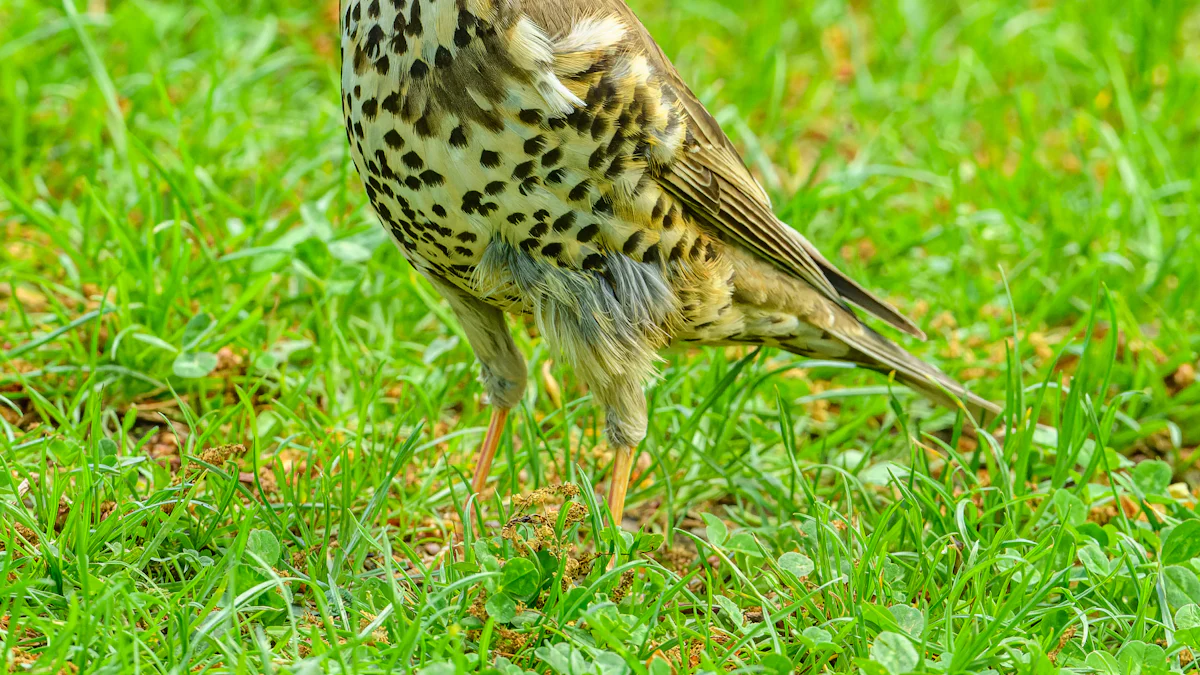
Mealworms bring a surprising twist to gardening. These tiny creatures work wonders by transforming waste into nutrient-rich frass, a natural fertilizer packed with nitrogen, phosphorus, and potassium. Their frass not only enriches the soil but also boosts helpful microbes, creating an ideal environment for plants to thrive. Studies show that mealworm frass accelerates plant growth and improves crop yields, making it a sustainable alternative to chemical fertilizers. Think of it as a treat for mealworms that, in turn, rewards your garden with healthier plants and vibrant blooms.
Key Takeaways
- Mealworms produce nutrient-rich frass, a natural fertilizer that enhances soil fertility and promotes plant growth.
- Incorporating mealworm frass into your garden improves microbial activity, leading to healthier soil and stronger plants.
- Using mealworms in composting reduces household waste while accelerating the decomposition process, creating high-quality compost.
- Mealworm frass helps plants resist pests and diseases by fostering a balanced microbial environment in the soil.
- Setting up a mealworm bin is simple and requires minimal maintenance, making it an accessible option for eco-conscious gardeners.
- Regularly monitor mealworm habitats to prevent overcrowding and maintain optimal conditions for their growth and productivity.
- Embracing mealworms in gardening practices contributes to sustainable agriculture and a healthier environment.
Nutritional Benefits for Soil

Healthy soil forms the backbone of any thriving garden, and mealworms play a pivotal role in enriching it. Their contributions go beyond the surface, transforming ordinary dirt into a nutrient-packed haven for plants.
How Mealworm Castings Enrich Soil
Mealworm castings, also known as frass, act as a natural fertilizer brimming with essential nutrients like nitrogen, phosphorus, and potassium. These nutrients are vital for plant growth, helping roots absorb what they need to flourish. Unlike synthetic fertilizers, mealworm frass releases nutrients gradually, ensuring plants receive a steady supply over time. This slow-release process minimizes nutrient loss and maximizes soil fertility.
Scientific Research Findings: Studies highlight that mealworm frass can substitute mineral NPK fertilizers without compromising plant biomass output. It also improves soil structure, making it easier for roots to spread and access nutrients.
Additionally, mealworm frass enhances water retention in the soil. This means plants stay hydrated longer, even during dry spells. Gardeners often describe it as a "treat for mealworms" that rewards the soil with improved quality and productivity.
Role in Microbial Activity
Mealworm frass doesn’t just feed plants; it also nourishes the microscopic life within the soil. Beneficial microbes thrive in the presence of mealworm castings, creating a bustling ecosystem underground. These microorganisms break down organic matter, releasing nutrients that plants can absorb more easily.
Scientific Research Findings: Research reveals that mealworm frass stimulates soil-dwelling microorganisms, boosting microbial activity and improving soil health. This microbial boost leads to faster nitrogen mineralization, which directly benefits plant growth.
The increased microbial activity also helps suppress harmful pathogens in the soil. By fostering a balanced microbial environment, mealworm frass indirectly strengthens plant resistance to diseases. This dual benefit of feeding plants and supporting soil life makes mealworms an invaluable ally for gardeners.
Incorporating mealworm frass into gardening practices transforms the soil into a living, breathing ecosystem. It’s not just about growing plants; it’s about cultivating a sustainable foundation for long-term gardening success.
Waste Reduction
Mealworms as Organic Matter Breakers
Mealworms excel at breaking down organic matter, making them nature’s tiny recyclers. These creatures consume kitchen scraps, cardboard, and other biodegradable materials, transforming them into nutrient-rich compost. Their appetite for organic waste reduces the amount of trash that ends up in landfills, offering an eco-friendly solution to waste management.
Unlike traditional composting methods, mealworms work quickly. They munch through food scraps and other organic debris, speeding up the decomposition process. Their activity also helps mix and churn the compost pile, ensuring even breakdown of materials. This natural efficiency makes them a valuable addition to any composting system.
Fun Fact: Mealworms thrive on table scraps and organic waste, often appearing naturally in compost piles. Their presence accelerates the composting process, turning waste into garden gold.
Gardeners who use mealworms often notice a significant reduction in their household waste. By feeding mealworms regularly, they not only cut down on trash but also create a sustainable cycle of waste-to-compost. It’s a win-win for the environment and the garden.
Composting with Mealworms
Composting with mealworms is both simple and rewarding. A well-maintained mealworm bin can process food waste efficiently, producing high-quality compost for gardening. Mealworms thrive in worm bins, where they feed on organic material and leave behind nutrient-rich frass. This frass serves as a powerful fertilizer, enriching the soil and promoting plant growth.
To start, gardeners can set up a mealworm bin using basic materials like a plastic container, bedding, and food scraps. Mealworms adapt easily to their environment, requiring minimal maintenance. Regular feeding keeps them active and productive, ensuring a steady supply of compost.
Pro Tip: Mealworm bins work best when kept in a cool, dry place. Avoid overfeeding to prevent odors and maintain a healthy balance in the bin.
Mealworms also play a role in cold compost piles. Their natural activity helps break down ingredients faster, making them ideal for gardeners looking to speed up the composting process. Over time, this method produces rich, dark compost that nourishes plants and improves soil health.
By incorporating mealworms into composting practices, gardeners can reduce waste, create sustainable fertilizer, and contribute to a greener planet. These tiny creatures prove that even the smallest efforts can make a big difference.
Plant Health

Mealworms bring more than just soil benefits; they actively contribute to the overall health of plants. Their frass acts as a natural powerhouse, enhancing both growth and resilience in plants.
Boosting Plant Growth
Mealworm frass serves as a nutrient-rich fertilizer that fuels plant growth. Packed with nitrogen, phosphorus, and potassium (NPK), it provides essential minerals that plants need to thrive. Studies have shown that adding mealworm frass to soil significantly improves plant growth parameters. For example, research on tomato plants revealed increased height, leaf size, and fruit yield when frass was used as a soil amendment.
Scientific Research Findings: A study published in the Journal of the Science of Food and Agriculture found that mealworm frass boosted tomato plant growth and fruit production compared to untreated plants.
The benefits extend beyond tomatoes. Another study highlighted its impact on crops like lettuce, broccoli, and spinach. Plants treated with mealworm frass developed larger leaves, thicker stems, and stronger roots. This makes mealworm frass an excellent choice for gardeners aiming to maximize their harvest.
Pro Tip: Sprinkle mealworm frass around the base of plants as a top dressing or mix it into the soil before planting. This ensures a steady release of nutrients over time.
Gardeners often describe mealworm frass as a "treat for mealworms" that rewards plants with lush growth and vibrant foliage. Its slow-release nature prevents over-fertilization, making it a safer alternative to synthetic fertilizers.
Enhancing Plant Resistance
Mealworm frass not only promotes growth but also strengthens plants against environmental stressors. The nutrients and beneficial microbes in frass create a healthier soil environment, which indirectly boosts plant immunity. Plants grown in frass-enriched soil often show greater resistance to pests and diseases.
Scientific Research Findings: Studies indicate that mealworm frass stimulates microbial activity in the soil. These microbes suppress harmful pathogens, creating a protective barrier for plants.
Additionally, the improved root systems fostered by mealworm frass allow plants to absorb water and nutrients more efficiently. This resilience helps plants withstand drought conditions and nutrient deficiencies. Gardeners using mealworm frass often notice fewer pest infestations and healthier crops overall.
Fun Fact: Mealworm frass contains chitin, a natural compound that triggers plants’ defense mechanisms. This makes plants more resistant to common garden pests like aphids and caterpillars.
Incorporating mealworm frass into gardening practices not only nurtures plants but also equips them to face challenges head-on. It’s a simple yet effective way to ensure a thriving, resilient garden.
Practical Tips for Using Mealworms in Gardening
How to Introduce Mealworms to Your Garden
Starting with mealworms in your garden is easier than it sounds. These tiny helpers require minimal effort to set up and maintain. To begin, gardeners can either purchase mealworms from a supplier or create a habitat to raise them at home. Both options work well, depending on personal preference and available time.
For those looking to raise mealworms, a simple setup is all it takes. Use a container with smooth sides to prevent escapees. Fill the bottom with oats or wheat bran, which serves as both bedding and food. Add slices of potatoes or carrots to provide moisture. Keep the container in a dark, stable environment with temperatures between 70°F and 80°F. Within weeks, the mealworms will thrive and multiply, creating a sustainable source for gardening needs.
Pro Tip: Avoid overcrowding the container. Give mealworms enough space to move and grow, ensuring a healthy population.
If raising mealworms feels overwhelming, purchasing them is a great alternative. Many gardening stores and online suppliers offer live mealworms ready for use. Once acquired, sprinkle them directly into compost piles or garden beds. They will naturally integrate into the environment, breaking down organic matter and enriching the soil.
Mealworms adapt quickly to their surroundings. Whether added to a compost bin or introduced to garden soil, they immediately get to work. Their presence not only improves soil quality but also reduces waste, making them a valuable addition to any eco-friendly gardening routine.
Maintaining Mealworms
Keeping mealworms healthy and productive requires just a few simple steps. Regular care ensures they remain active and beneficial for gardening purposes. Start by maintaining their habitat. Replace the bedding every few weeks to prevent mold and odors. Fresh oats or wheat bran keep the environment clean and provide a consistent food source.
Moisture is essential for mealworms, but too much can lead to problems. Add fresh slices of potatoes or carrots every few days, removing old pieces to avoid spoilage. This balance keeps the habitat fresh and the mealworms hydrated.
Fun Fact: Adult beetles, known as darkling beetles, lay eggs that hatch into new mealworms. With proper care, a single colony can sustain itself indefinitely.
Temperature control plays a crucial role in mealworm maintenance. Keep their habitat in a cool, dry place away from direct sunlight. Extreme temperatures can harm the mealworms, so aim for a stable range of 70°F to 80°F. Regularly check for signs of overcrowding. If the container becomes too crowded, transfer some mealworms to a new habitat to ensure they have enough space to thrive.
Pro Tip: Use a mesh lid or breathable cover for the container. This prevents pests while allowing proper airflow.
Mealworms are low-maintenance creatures, making them ideal for busy gardeners. With just a little attention, they will continue to break down organic matter and produce nutrient-rich frass. Their ongoing contributions to soil health and waste reduction make them an invaluable part of sustainable gardening practices.
Challenges and Solutions
Common Issues with Mealworms
Mealworms, despite their many benefits, can present a few challenges for gardeners. Understanding these issues helps ensure their effective use in gardening.
One common problem involves maintaining the right environment for mealworms. These creatures thrive in specific conditions, such as temperatures between 70°F and 80°F and low humidity. If the habitat becomes too damp or too dry, mealworms may struggle to survive. Regular monitoring of their living space prevents these issues. Adding fresh bedding and removing spoiled food keeps their environment clean and balanced.
Another challenge arises from overpopulation in mealworm bins. When too many mealworms occupy a single container, competition for food and space increases. This can lead to slower growth and reduced productivity. Gardeners can solve this by dividing the colony into multiple containers, ensuring each group has enough room to thrive.
Pro Tip: Keep an eye out for signs of overcrowding, such as clumps of mealworms or uneaten food. Addressing these signs early prevents larger problems.
Mealworms may also attract unwanted pests, such as mites or flies, if their habitat is not well-maintained. Cleaning the container regularly and using a breathable cover minimizes the risk of infestations. Proper care ensures mealworms remain healthy and productive.
Addressing Concerns About Pests
Some gardeners worry that introducing mealworms to their garden might attract pests or predators. While this concern is valid, it can be managed with a few precautions.
Birds, for instance, may be drawn to mealworms in outdoor settings. To prevent this, gardeners can use protective netting over garden beds or compost piles. This barrier keeps birds away while allowing mealworms to work their magic. Additionally, placing mealworms in enclosed compost bins reduces their exposure to predators.
Fun Fact: Birds love mealworms as a snack, but gardeners can turn this into an advantage by using mealworms to attract birds to other areas of the yard, away from the garden.
Another concern involves the potential for mealworms to escape and become pests themselves. However, mealworms are unlikely to cause harm to plants or structures. They primarily feed on decomposing organic matter, not live vegetation. Keeping mealworms in controlled environments, such as bins or designated garden areas, eliminates this risk.
Lastly, some gardeners worry about the spread of diseases through mealworms. Fortunately, mealworms are generally clean creatures when raised in proper conditions. Regularly replacing bedding and removing waste ensures a healthy colony. By maintaining hygiene, gardeners can confidently use mealworms without fear of contamination.
Key Takeaway: Mealworms, when managed responsibly, pose minimal risks to gardens. Their benefits far outweigh the challenges, making them a valuable addition to sustainable gardening practices.
Mealworms bring a fresh perspective to gardening. Their ability to enrich soil, reduce waste, and promote plant health makes them a natural choice for eco-conscious gardeners. By incorporating mealworms into composting or soil enrichment, gardeners can create a thriving ecosystem that supports sustainable practices. Mealworm frass, often described as a treat for mealworms, transforms ordinary soil into a nutrient-rich foundation for plants. These tiny creatures not only improve soil quality but also encourage biodiversity and pest resistance. Embracing mealworms in gardening ensures long-term benefits for both plants and the environment.
FAQ
Are Mealworms Good for Your Garden?
Absolutely! Mealworms bring numerous benefits to gardens. They enrich the soil with nutrient-packed frass, which acts as a natural fertilizer. Their presence also encourages biodiversity by supporting beneficial microbes and soil organisms. Additionally, mealworms help manage pests indirectly by improving plant health and resistance. For gardeners seeking sustainable practices, mealworms are a fantastic choice.
Are Mealworms Safe for Compost Bins?
Yes, mealworms are completely safe for compost bins. These tiny creatures thrive in composting environments, breaking down organic matter efficiently. They consume food scraps, cardboard, and other biodegradable materials without causing harm. Their activity accelerates the composting process, making them a valuable addition to any composting system.
Are Mealworms Good for Compost?
Mealworms excel at composting. They speed up the decomposition process in cold compost piles by breaking down ingredients into smaller, manageable pieces. Their frass enriches the compost with essential nutrients, turning it into a powerful soil amendment. Gardeners often describe mealworms as nature’s recyclers, transforming waste into garden gold.
How Do Mealworms Improve Soil Health?
Mealworms improve soil health through their frass, which is rich in nitrogen, phosphorus, and potassium. These nutrients enhance soil fertility and promote plant growth. Mealworm frass also boosts microbial activity, creating a thriving ecosystem underground. This microbial boost improves soil structure, water retention, and nutrient availability, making it easier for plants to grow strong and healthy.
Can Mealworms Attract Pests to My Garden?
Mealworms themselves do not attract harmful pests. However, their presence might draw birds or other predators that enjoy snacking on them. To prevent this, gardeners can use protective netting or enclosed compost bins. Mealworms primarily feed on decomposing organic matter, so they pose no threat to live plants or structures.
How Do I Start Using Mealworms in My Garden?
Starting with mealworms is simple. Gardeners can purchase live mealworms from suppliers or raise them at home. For a DIY setup, use a container with oats or wheat bran as bedding and add slices of potatoes or carrots for moisture. Once ready, introduce mealworms to compost piles or garden beds. They will naturally integrate and begin enriching the soil.
What Should I Feed Mealworms?
Mealworms thrive on a diet of organic materials. Kitchen scraps like vegetable peels, fruit rinds, and stale bread work well. They also enjoy grains such as oats or wheat bran. Avoid feeding them anything salty, spicy, or moldy, as these can harm their health. Providing a balanced diet ensures they remain active and productive.
Do Mealworms Require Special Care?
Mealworms are low-maintenance creatures. They need a clean habitat, fresh bedding, and a consistent food source. Regularly replace old food and bedding to prevent odors and mold. Maintain a stable temperature between 70°F and 80°F, and ensure proper ventilation. With minimal effort, mealworms will thrive and continue benefiting your garden.
Can Mealworms Survive Outdoors?
Mealworms can survive outdoors in mild climates. However, extreme temperatures or excessive moisture can harm them. For outdoor use, introduce them to compost piles or garden beds where they can burrow and find shelter. In colder regions, consider keeping them in a controlled indoor environment to ensure their survival.
Why Should Gardeners Choose Mealworms?
Mealworms offer a sustainable and eco-friendly solution for gardening. They reduce waste, enrich soil, and promote plant health. Their frass acts as a natural fertilizer, eliminating the need for chemical alternatives. By incorporating mealworms into gardening practices, gardeners can create a thriving, self-sustaining ecosystem that benefits both plants and the environment.


